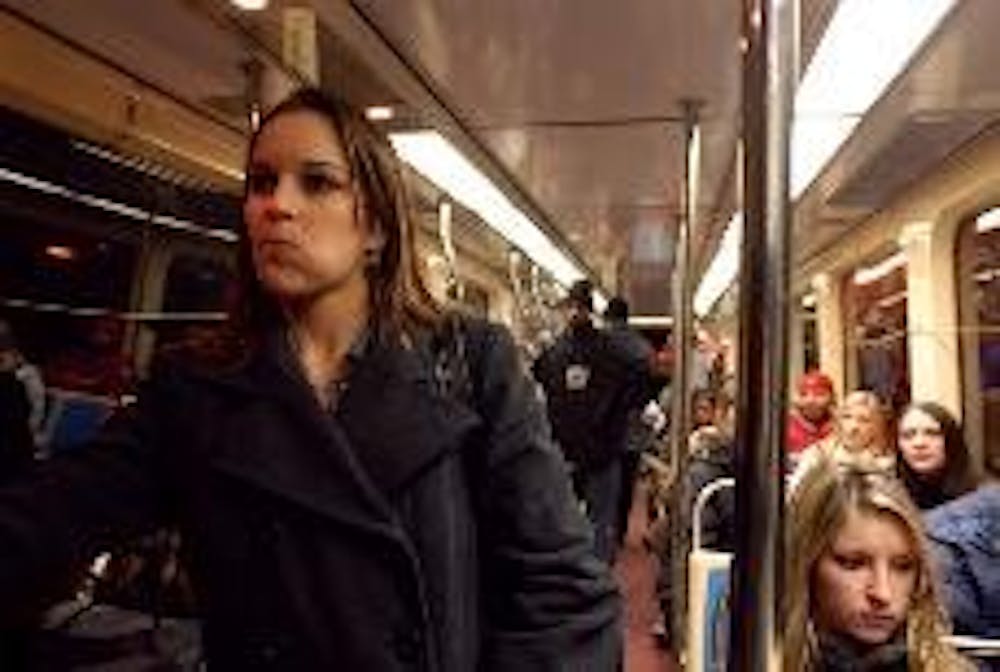When SEPTA announced last week that its fares would be increased, city officials were in a buzz, calling the situation a "crisis."
But calm down, experts say - it might not be so bad.
SEPTA announced last Thursday that the company will experience a $150 million deficit if it does not receive state aid.
In order to combat these losses, the company announced two plans: Plan A is the less severe of the two and combines state aid with an 11-percent fare increase. Plan B involves cutting 1,000 workers and some routes and increasing fares by 31 percent.
Following the announcement, SEPTA General Manager Faye Moore recognized the drastic effects of the second plan, calling it "unthinkable."
"The impact of such massive fare hikes and service cuts would undermine the viability of public transportation in the region," she said.
But Vukan Vuhcic, professor of City and Regional Planning at Penn, said Moore's worries will likely eventually disappear.
"SEPTA will probably get the proper funding" and go with Plan A, he said.
Vuhcic noted that, in the past, the state has come to SEPTA's rescue, but state officials have likely been slower to react this year because the city has not come out in full support of the organization.
Fares account for less than 50 percent of SEPTA's revenue, making state- and local-government subsidization programs that much more important.
This year's problems arose because state subsidies for SEPTA have "leveled out" over the past years, and that SEPTA has been forced to "flex money" in order to pay expenses as the cost of living has increased, SEPTA spokesman Jim Whitaker said.
But the state government is already working hard to ease the financial burden on mass-transit companies statewide, said Chuck Ardo, a spokesman for Gov. Ed Rendell.
Rendell recommended a new 6.17-percent tax on oil companies that would generate the $760 million needed for subsidizing transit systems across Pennsylvania.
Both Rendell's office and Vuhcic made clear that changes need to be made in transit agencies as well.
Ardo emphasized that Rendell recognizes the importance of dependable funding for mass transportation, but also that the funding of these services are not solely the burden of the state.
"All transit agencies need also to look in-house and work to be more efficient," he said. "They need to make sure the routes they are running are essential."
Vuhcic agreed that this crisis could be used as an opportunity to maximize efficiency.
"The services could be sped up if buses did not stop at every corner," he said.
Public hearings in which the details of both plans will be discussed will occur in April.
But no matter the outcome, SEPTA users - most of which have no viable alternative to the service - will be forced to stomach the increase.
"Other than walking or taking a cab, [SEPTA] is my only way of getting to campus," said Wharton senior Katie Prada, who commutes from her Center City apartment every day. "SEPTA needs to do what it can to keep fares affordable."



